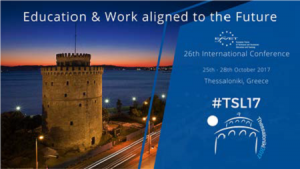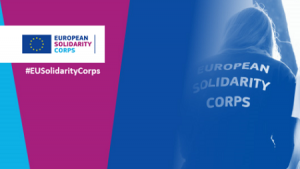Weekly Roundup
DOREA Team is happy to introduce our newest section – “EDU-NEWS corner” where You will find the summaries of weekly educational news including news about Erasmus+ programme, EfVET, European Commission, educational publications and etc.
EfVET Newsletter March 2017
 The March edition newsletter of European Forum of Technical and Vocational Education and Training (EfVET) provided a few highlights on their new and upcoming events. Starting with the one that will be held this same month – SHINE Multiplier event in Brussels (Belgium) on 28th of March. It is a High Vocational Education & Training excellence event supporting growth, innovation and competitiveness. Any actors managing HVET programmes, as well as students, are welcome to help reduce the gap between local economic contexts and goals set by corresponding regional Smart Specialisation Strategies, by acknowledging the role and innovative potential of high-level technical professional profiles. The organisers promise a discussion and exchange of good elements of success in HVET with excellent speakers.
The March edition newsletter of European Forum of Technical and Vocational Education and Training (EfVET) provided a few highlights on their new and upcoming events. Starting with the one that will be held this same month – SHINE Multiplier event in Brussels (Belgium) on 28th of March. It is a High Vocational Education & Training excellence event supporting growth, innovation and competitiveness. Any actors managing HVET programmes, as well as students, are welcome to help reduce the gap between local economic contexts and goals set by corresponding regional Smart Specialisation Strategies, by acknowledging the role and innovative potential of high-level technical professional profiles. The organisers promise a discussion and exchange of good elements of success in HVET with excellent speakers.
EfVET also announced information about the 26th Annual EfVET International Conference that will take place on 25th – 28th October 2017 in Thessaloniki, Greece. The Conference will host delegates from more than 150 institutions from around the world who are engaged in Vocational Training and Education, are active researchers and educators; it will cover more than 72 hours, 30 roundtables and 6 workshops. More information about the programme and theme of the Conference will be available in May.
A dark shadow: teacher’s mental health
 A recent survey in Scotland (February 2017) shined a bit of light on the professional pressure that teachers are affected by. A considerable volume of responses (778) provided an insight on how teachers feel about their mental health with some 45% of respondents acknowledged that their mental health was poor or very poor.
A recent survey in Scotland (February 2017) shined a bit of light on the professional pressure that teachers are affected by. A considerable volume of responses (778) provided an insight on how teachers feel about their mental health with some 45% of respondents acknowledged that their mental health was poor or very poor.
Euan Duncan, President of Scottish Secondary Teachers’ Association, noted that: “In most occupations, you can shut your door and have a coffee if things get on top of you. The lack of control teachers have over their timetable, including breaks, makes it very difficult to take respite when it is needed”. Thus said, 15% reported taking medication because of the strains of their work, including the data that every respondent feels the heavy burden of guilt about the educational experience they offered their students.
However, stress-related mental health problems do not only occur in Scotland but are relevant worldwide. Educational Institutions should consider following Scottish government administration lead, as they taken actions to reduce teacher’s workload. A well as, providing the teachers with the opportunity to participate in training courses.
For further readings and more detailed survey statistics click here.
Let your opinion be heard
 As the Erasmus+ programme celebrates its 30 years of activeness The European Commission launched an online questionnaire. It aims to gather comments and insights on the relevance of the Erasmus+ programme’s objectives, the effectiveness of the measure taken to achieve them and the efficiency of their implementation. The mobility programme unites a big variety of young people, students, teachers, youth workers, organisations, employers and more the Commission wants to hear from all of them as they have a stake in the programme. You can submit your feedback from March until May 2017 and the results will be published later in 2017 as a report.
As the Erasmus+ programme celebrates its 30 years of activeness The European Commission launched an online questionnaire. It aims to gather comments and insights on the relevance of the Erasmus+ programme’s objectives, the effectiveness of the measure taken to achieve them and the efficiency of their implementation. The mobility programme unites a big variety of young people, students, teachers, youth workers, organisations, employers and more the Commission wants to hear from all of them as they have a stake in the programme. You can submit your feedback from March until May 2017 and the results will be published later in 2017 as a report.
If you are interested in sharing your comments, you can fill out an online questionnaire here. The form is based on a number of open and close questions and there are also free text boxes providing you to give alternative answers to the options provided. It should take 10-60 minutes to complete it, depending on the details in your answers. The questionnaire is available for the respondents in any of the official languages of the European Union.
Education is the only way forward
 European Economic and Social Committee’s 523rd plenary session took place in Brussels where the most stressed theme was “High-quality education for all”. The members of the EESC encourages to take a stronger commitment in the field of high-quality education for all to accomplish the EU objectives for 2020 and the UN objectives for 2030. State-funded high-quality education and training are important and relevant to educate citizens of each Member State on human rights, their role as citizens and strengthening European values in all educational programmes. That’s why the Maltese Presidency’s choice of “High-quality education for all” as an overarching theme pleased the EESC. By this Malta aims to promote unity in diversity in formal and non-formal education and how it is important and essential to uphold fundamental rights and values in European societies.
European Economic and Social Committee’s 523rd plenary session took place in Brussels where the most stressed theme was “High-quality education for all”. The members of the EESC encourages to take a stronger commitment in the field of high-quality education for all to accomplish the EU objectives for 2020 and the UN objectives for 2030. State-funded high-quality education and training are important and relevant to educate citizens of each Member State on human rights, their role as citizens and strengthening European values in all educational programmes. That’s why the Maltese Presidency’s choice of “High-quality education for all” as an overarching theme pleased the EESC. By this Malta aims to promote unity in diversity in formal and non-formal education and how it is important and essential to uphold fundamental rights and values in European societies.
The EESC has also emphasised the importance of ICT in education. Research studies from the OECD and UNESCO point out the need to ensure that education establishments are equipped to use the ICT in teaching. To shape the future, we need to improve teaching competencies regarding the use of ICT at all levels of education to enhance digital skills and prepare workers for the digital jobs of the future.
For more information, please click here.
The database of possibilities is open
 “Today, the European Solidarity Corps is taking a huge step towards delivering on the ground,” said Commissioner for Education, Culture, Youth and Sport, Tibor Navracsics. In the European Commission press release organisations that are accredited and will provide a solidarity, placements can now use the database to find potential employees, trainees or volunteers for their activities providing the opportunity of several hundred job placements for young Europeans will be available this spring through the newly launched European Solidarity Corps. “Now that we are opening our database to organisations and public authorities, matching can start and the first young Europeans will soon begin their activities. I am proud to see that many young people have already joined the Corps and are ready to make a difference. Now I encourage organisations to follow suit and provide as many placements a possible.” Tibor Navracsics added. Since the launch, more than 20,000 young Europeans have registered by uploading their CVs and indicating their skills, availabilities, motivations and experiences.
“Today, the European Solidarity Corps is taking a huge step towards delivering on the ground,” said Commissioner for Education, Culture, Youth and Sport, Tibor Navracsics. In the European Commission press release organisations that are accredited and will provide a solidarity, placements can now use the database to find potential employees, trainees or volunteers for their activities providing the opportunity of several hundred job placements for young Europeans will be available this spring through the newly launched European Solidarity Corps. “Now that we are opening our database to organisations and public authorities, matching can start and the first young Europeans will soon begin their activities. I am proud to see that many young people have already joined the Corps and are ready to make a difference. Now I encourage organisations to follow suit and provide as many placements a possible.” Tibor Navracsics added. Since the launch, more than 20,000 young Europeans have registered by uploading their CVs and indicating their skills, availabilities, motivations and experiences.
Commissioner for Employment, Social Affairs, Skills and Labour Mobility, Marianne Thyssen, said: “Today we lay another building block of the European Solidarity Corps. With the opening of the online matching tool to organisations and partners providing placements European Solidarity Corps members can start making a positive impact on the ground while acquiring invaluable skills for their future life and career.”
Prepared by Simona Varankaite

